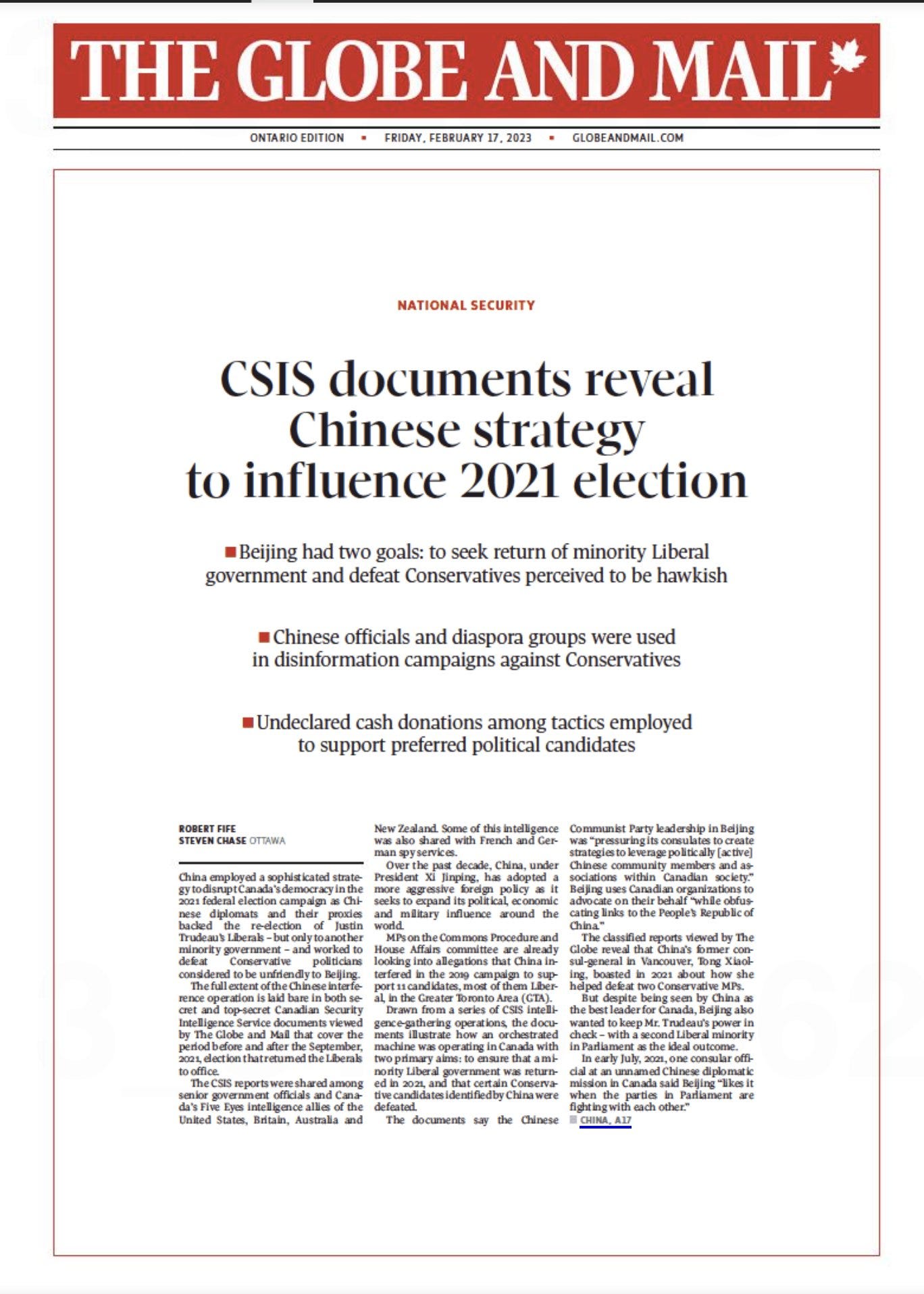The frying pan and the fire
Rouleau clears the Trudeau government. Fife and Chase, not so much
The Prime Minister’s Office could not have received a better report on their handling of the Freedom Convoy if they had written it.
In fact anything they wrote would certainly have been of less use to them than the five-volume report of Justice Paul Rouleau’s Public Order Emergency Commission, because the PMO version would have been characterized by that shop’s addiction to self-congratulation and caricaturing of opponents, whereas Rouleau’s report gives everyone on every side of last year’s mess ample benefit of the doubt. He doles out criticism to several players, but the thing he’s written is so gentle and low-key it seems hard to square with the circus of polarization and demonization he’s been asked to assess. As such, the Rouleau report is a product of a different time than the Convoy. Or two different times: (1) the late 1980s, when one of Brian Mulroney’s most softspoken cabinet ministers rewrote the War Measures Act in an intensely collaborative process that welcomed dozens of opposition amendments, while the last man to use the War Measures Act watched and helped from across the aisle; and (2) the current moment, when the generalized fury and finger-pointing that characterized the depths of the COVID restrictions now seems so distant it’s already hard to remember how angry everyone was.
Here’s the culmination of his analysis, what journalists call the “nut graf.” From the report:
“[T]he threshold for invocation [of emergency powers in general] is the point at which order breaks down and freedom cannot be secured or is seriously threatened. In my view, that threshold was reached here….
“I have concluded that Cabinet was reasonably concerned that the situation it was facing was worsening and at risk of becoming dangerous and unmanageable. There was credible and compelling evidence supporting both a subjective and objective reasonable belief in the existence of a public order emergency. The decision to invoke the Act was appropriate.”
And from his news conference, an admission that he does not believe his conclusion to be open-and-shut:
“I do not come to this conclusion easily, as I do not consider the factual basis for it to be overwhelming. Reasonable and informed people could reach a different conclusion than the one I have arrived at.”
So if you were afraid Rouleau would be Trudeau’s tool for “sweeping Emergencies Act failings under [a] rug,” as Sun columnist Brian Lilley was when this whole commission was appointed, Rouleau might like your worst nightmare. I remain unpersuaded by a few links in Rouleau’s chain of reasoning. Perhaps I’m one of the “reasonable and informed people” to which he referred this afternoon.
But a read of Rouleau’s report (and I have so far read only the first volume, the summary document that gives his argument in detail) suggests his decision is the product of thorough consideration. When I began covering the commission’s hearings four months ago, I hazarded this guess about how it would all end:
Let me skip ahead to Rouleau’s report, which must come out by next February. Whatever it says — and there is never any accounting for judges, so I can’t be sure — I don’t think it will have much effect on the politics of the thing. To test my claim, ask yourself whether you think Trudeau was right to use the Emergencies Act, and then ask whether you’ll change your mind if Paul Rouleau disagrees with you. See? Everyone else is like you. Stubborn.
My hunch today is that it won’t be quite the public-opinion toss-up I anticipated then. Most Canadians were already willing to believe the Emergencies Act invocation was reasonable, and in fact, opinion has been trending in that direction over time. A figure like Rouleau enhances the credibility of that conclusion, because a lot of people with complex or unsettled thoughts will simply trust the word of a judge. Public opinion in Canada is always plural and contradictory in places, but as a general matter of partisan politics, I think the Rouleau report settles the matter in the Liberals’ favour.
But how about that Globe China story? Holy jumpers.
Here’s a detailed look at Rouleau’s analysis. I’ll follow with some thoughts on Robert Fife and Steven Chase’s latest revelations.
Keep reading with a 7-day free trial
Subscribe to Paul Wells to keep reading this post and get 7 days of free access to the full post archives.





